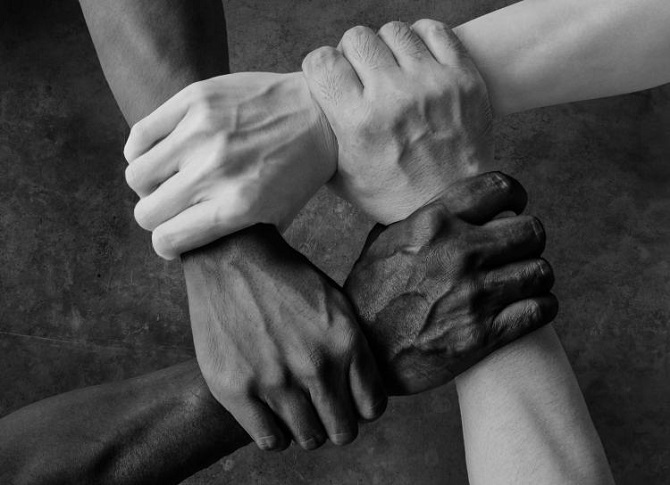On International Day for the Elimination of Racial Discrimination, the EU’s voice is strong and action determined to fight racism and xenophobia. The call is even stronger nowadays, when intolerance and xenophobia are on the rise
On 21 March 1960, the police opened fire on an unarmed crowd that had gathered peacefully in Sharpeville, South Africa, to protest the apartheid “pass laws”. As a result, 69 people were killed and more than 300 injured. In 1966, that terrible date became a symbol when the UN General Assembly proclaimed it International Day for the Elimination of Racial Discrimination. Today, and every day, the European Union reiterates its unshakeable commitment to fighting racism, xenophobia and all other forms of intolerance.
“Attacks within the European Union and abroad demonstrate that there is a continuous need to step up our efforts and actions to prevent hate crimes, discrimination, racism, xenophobia and related intolerance”, reads a Declaration issued by the High Representative Josep Borrell on behalf of the European Union. “The EU is determined to put an end to these crimes, once and for all. Racial discrimination runs against the values and principles of the European Union: universal human rights and fundamental freedoms. It will never be tolerated”.
The EU is working hard for the effective implementation of EU laws prohibiting racial or ethnic discrimination in all their manifestations, and pays close attention to the concerns of those particularly affected, including the Roma, Jewish and Muslim communities.
Read also
Beyond European borders, the EU funds dozens of projects dedicated to eradicate racially motivated discrimination. “Through our actions we enable, for example ethnic minority children and youth in Vietnam to use the digital space to better understand and claim their rights. We strengthen the collective voices and concerns of freed Haliyas in Nepal to take up the fight against any form of bonded labour. We empower Roma people by improving their access to justice. We fight hate crimes in non-homogenous Jewish-Arab mixed cities. We provide free legal and psychosocial aid to marginalised communities”, reads the statement.
#FightRacism: a global wave against xenophobia in 2020
“In recent decades, hate speech has been a precursor to atrocity crimes, including genocide, from Rwanda to Bosnia to Cambodia. I fear that the world is reaching another acute moment in battling the demon of hate”, said UN Secretary-General Antonio Guterres recently. Social media used as platforms to promote bigotry, neo-Nazi and white supremacy movements on the rise, the public discourse increasingly dominated by incendiary rhetoric against minorities, migrants, refugees, women, LGBTI persons… Against the alarming rise of xenophobia, racism and intolerance, the UN Human Rights Office has launched its #FightRacism(link is external) campaign to “foster a global culture of tolerance, equality and anti-discrimination”.
The #FightRacism campaign will count on the support of some leadin
g figures of global popular culture – sports, music, fashion, movies, TV, amongst others – to advance equality and anti-discrimination. Celebrities such as American rockstar Lenny Kravitz, German-Ghanaian footballer Kevin-Prince Boateng, Oscar-nominated Mexican actress Yalitza Aparicio and American albino rapper Roben X have already showed their support to the campaign.
This year´s International Day for the Elimination of Racial Discrimination will also provide an opportunity to focus attention on the International Decade for the People of African Descent, who constitute some of the world’s poorest and most marginalised groups. Five years after the Decade’s launch in 2015, the UN General Assembly will conduct a critical mid-point review, assessing what countries have accomplished and identify actions to improve the human rights situation of Afro-descendants. Studies and findings by international and national bodies demonstrate that people of African descent still have limited access to quality education, health services, housing and social security.
The EU works to eliminate racial discrimination in close cooperation with the United Nations, as well as with partner countries, civil society, human rights defenders and other international organisations.
European Union






















































